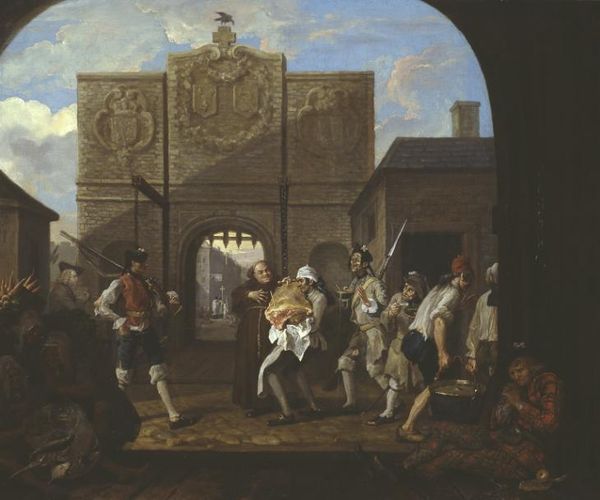Annotation:Roast Beef of Old England (The)
X:1 T:Roast Beef M:6/8 L:1/8 R:Jig B:Aird – Selection of Scotch, English, Irish and Foreign Airs, vol. 1 (1782, No. 77, p. 27) Z:AK/Fiddler’s Companion K:D A|d>ed c>de|fed e2c|d>ed c>dc|BE^G A2:||:A|BGB d2 c/B/| A>FD B3|e>fg c>BA|d3 A2F|G/A/ B2 A>dc|d3 d2:|]

The composer of both air and lyrics was Richard Leveridge, a celebrated bass singer, and it quickly became quite popular, taking on patriotic, nationalistic and martial trappings. Though extolling the virtues of England, it was very well-known and popular among Colonial soldiers, who recognized it as the signal for representatives to come and draw the rations that were ready for distribution to the rank and file. The air became married to ritual in the British army, as it was (and is today) traditionally played when English officers went to dine. James Murray, writing in his book Music of the Scottish Regiments (Edinburgh, 1994), says “Roast Beef of Old England” was played on the fife and drum during Wellington’s Peninsula campaigns (early 19th century) which “summoned the soldiers to dinner, as it was later to call the officers.” The tune was written in 1736, and the ceremony recorded in literature in 1813, though "it undoubtedly existed much earlier" (Winscott, 1970; 268). The earliest printings, by London music publishers John Walsh and John Johnson, give the title as "Roast Beef and Brown Beer." The American military adopted the English tradition, although amended the title to simply “Roast Beef.” It was the call to dinner—the mid-day meal—and the signal to draw provisions, as it was in England. The U.S. Navy employed the tune as the evening call to mess for officers aboard battleships as late as 1892, played by fife and drums.
Early published versions appear in Walsh's British Musical Miscellany and The Universal Musician. A morris dance version was collected from the village of Adderbury, Oxfordshire, in England's Cotswolds, where the dancers sang this chorus during the performance:
Oh! the roast beef of old England, and
Oh! for old England's roast beef ... (x2)
In The Mayor of Casterbridge (1886), the Devonshire author and musician Thomas Hardy has the Casterbridge village band play this tune early in the novella.
